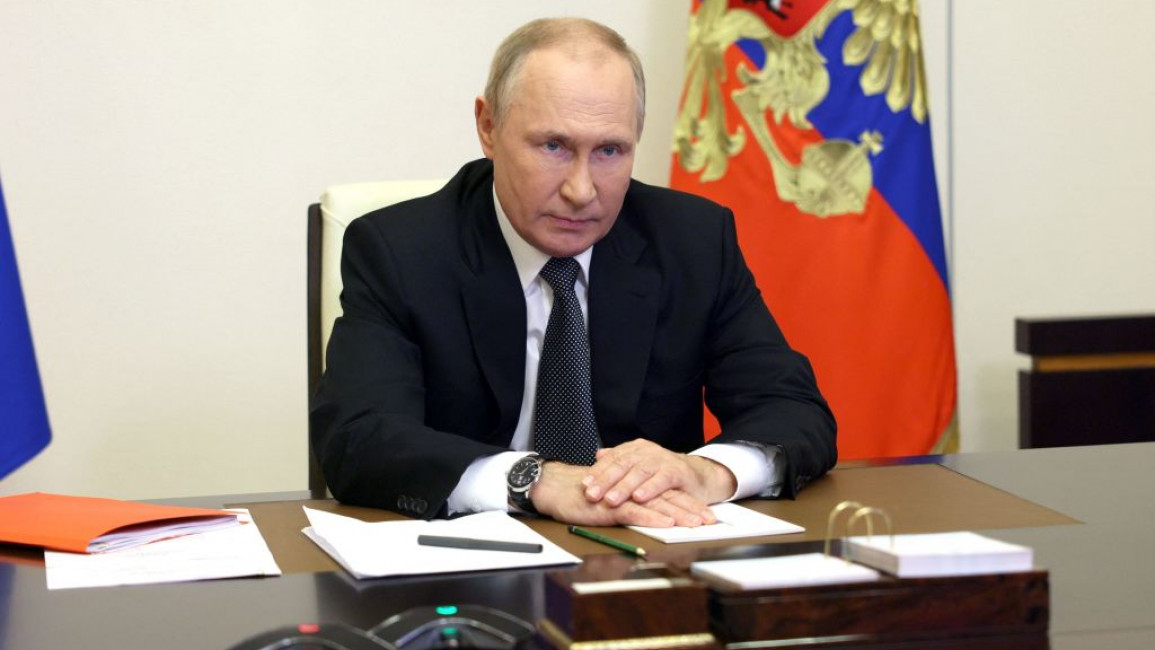Putin declares martial law in Ukraine regions Russia says annexed
Russian President Vladimir Putin on Wednesday introduced martial law in Ukraine's Donetsk, Lugansk, Kherson and Zaporizhzhia regions that Moscow claims to have annexed.
"I signed a decree to introduce martial law in these four subjects of the Russian Federation," Putin said during a televised National Security Council meeting.
The Kremlin then published a decree saying martial law will be introduced from early on Thursday.
Putin's announcement came as Ukrainian forces advanced in territory held by Moscow for months.
"The Kyiv regime refused to recognise the will of the people, rejects any proposals for negotiation, gunfire continues, civilians are dying," the 70-year-old Russian leader said.
He accused Ukraine of using "terrorist methods".
"They send sabotage groups into our territory," he said, claiming Moscow had foiled other attacks after its Crimea bridge was targeted "including at our nuclear power facilities".
Under Russian law, martial law allows for the strengthening of the military, curfews, limits on movement, forms of censorship and the interning of foreign citizens.
"We are working on solving very complex large-scale tasks to ensure security and protect the future of Russia," Putin said.
According to the decree, he also strengthened security inside Russia, putting Moscow-annexed Crimea and the southern regions of Krasnodar, Belgorod, Bryansk, Voronezh, Kursk and Rostov on a "medium level of response".
This includes moving some residents to "safe zones", introducing checks on entering and leaving the regions and strengthening security on infrastructure.
In the central federal district, which includes Moscow, a regime of "strengthened alert" was introduced, the decree said.


![Minnesota Tim Walz is working to court Muslim voters. [Getty]](/sites/default/files/styles/image_684x385/public/2169747529.jpeg?h=a5f2f23a&itok=b63Wif2V)




![Debris near Rafic Hariri International Airport [Getty]](/sites/default/files/styles/image_330x185/public/2176162423.jpeg?h=a5f2f23a&itok=MCSK9mkM)
![An Israeli air strike on Jabalia killed teenage journalist Hassan Hamad [Screengrab/X]](/sites/default/files/styles/image_330x185/public/2024-10/hassan%20hamad1.jpg?h=c12e0b96&itok=Rd_dyCVp)
